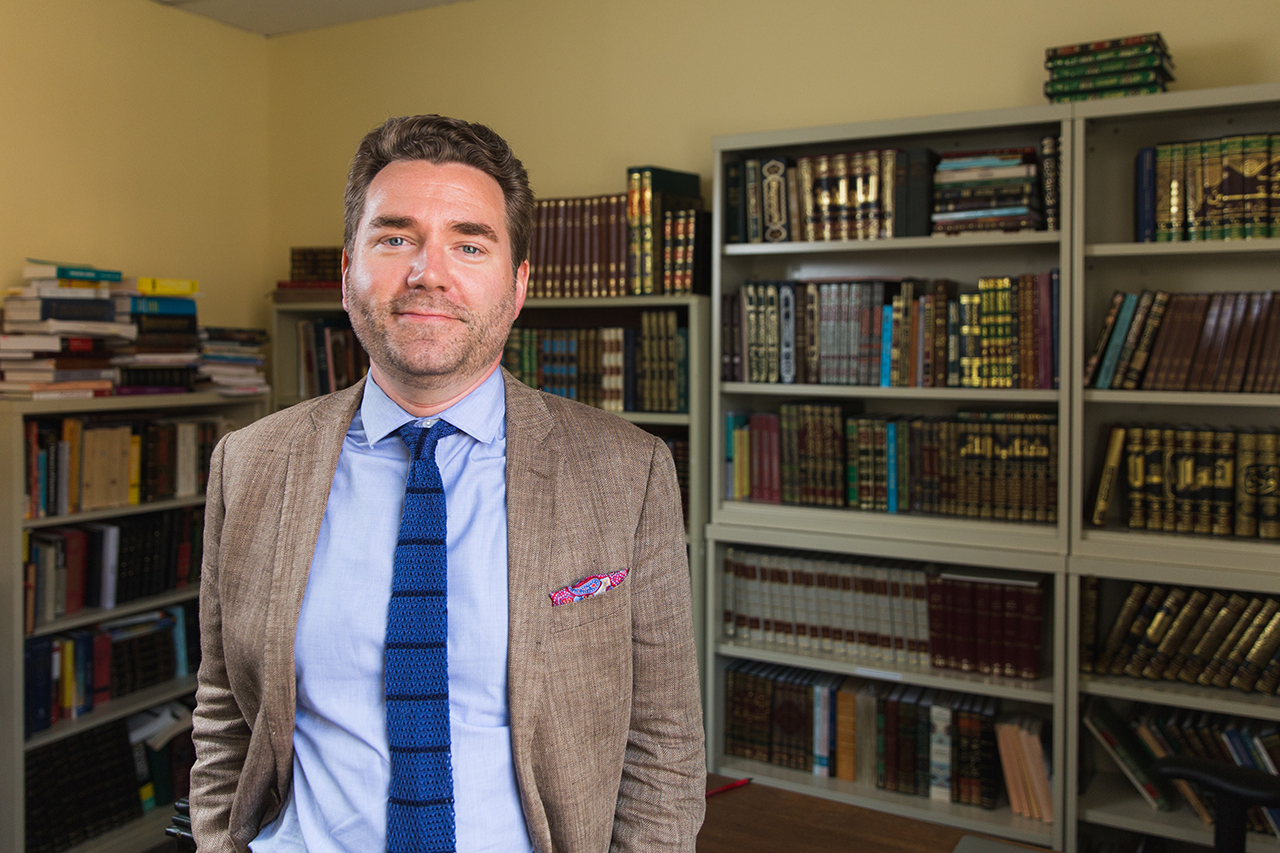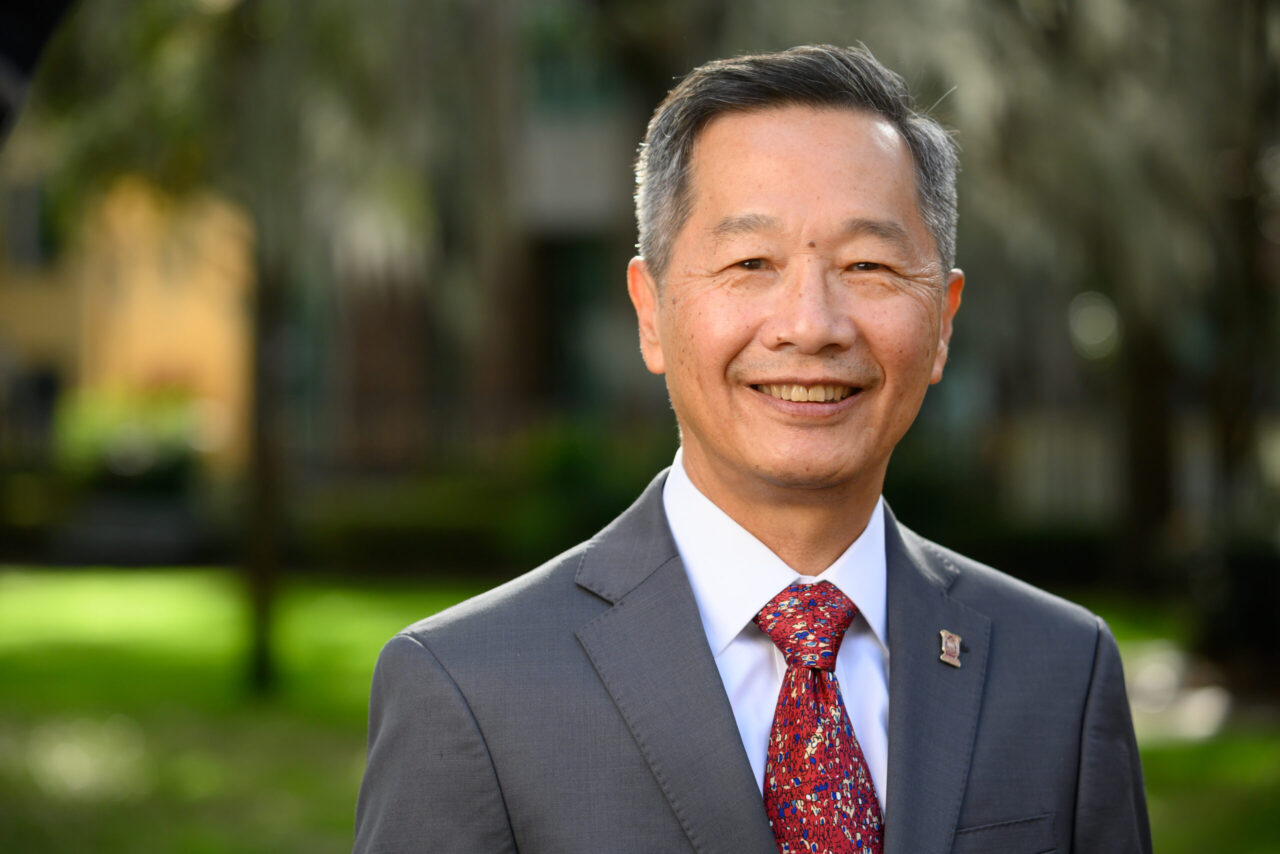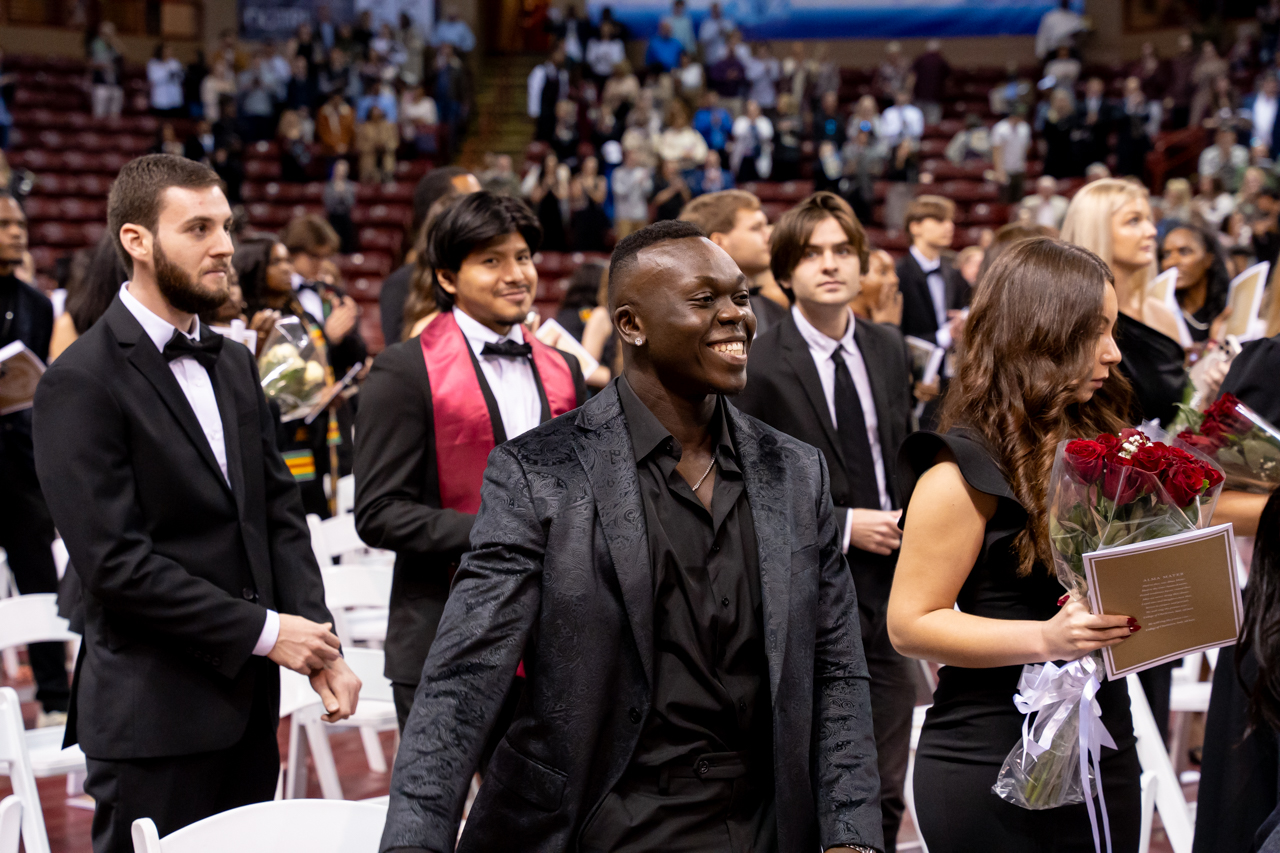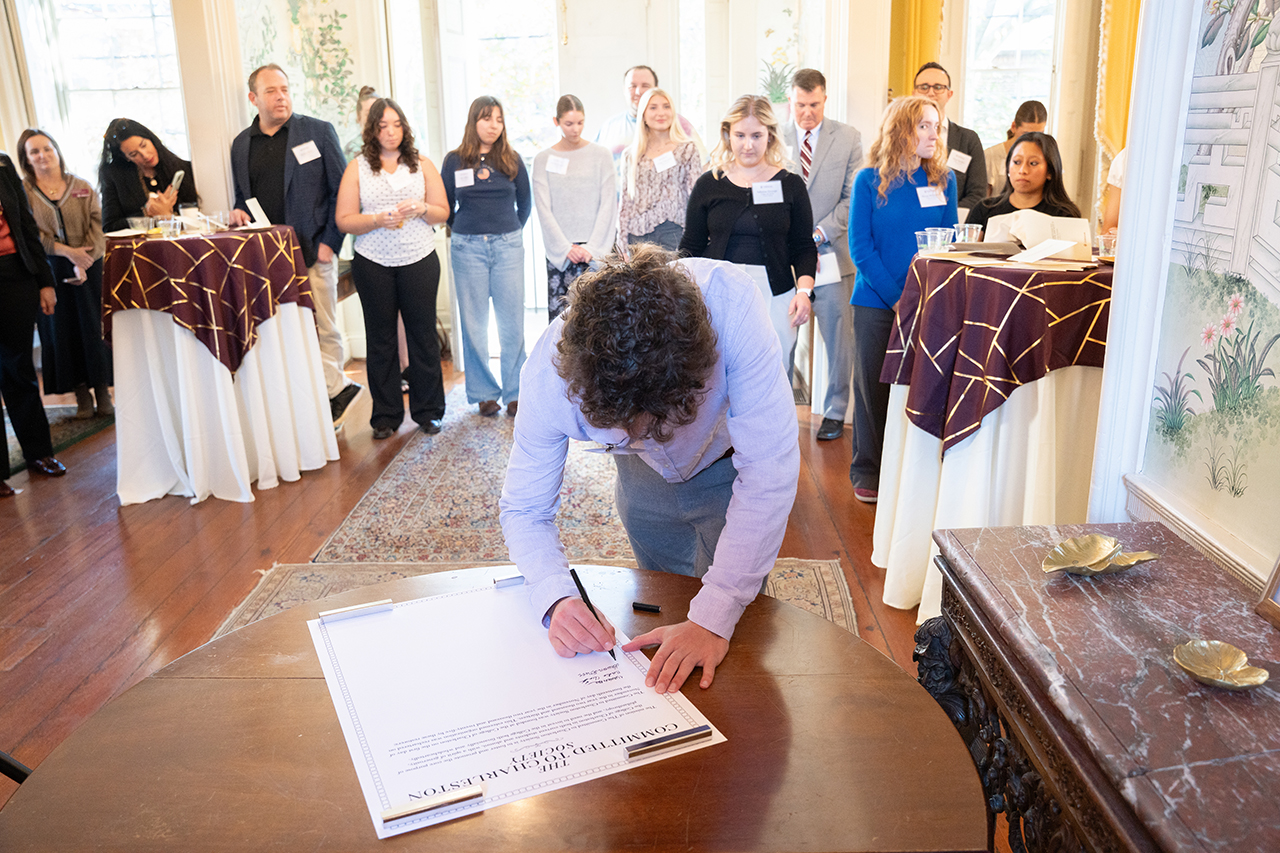CofC Professor Receives Institute for Advanced Study Fellowship
Garrett Davidson has received a prestigious fellowship at the Institute for Advanced Study located in Princeton, N.J.

Garrett Davidson, director of and associate professor in the College of Charleston Asian Studies Program, has received a prestigious fellowship at the Institute for Advanced Study. The fellowship aims to give scholars in various fields the opportunity to focus on the pursuit of cutting-edge research, and Davidson is the first CofC faculty member to receive the award.
“We are immensely proud of Dr. Davidson for being awarded this prestigious fellowship,” says Aimee Arias, dean of the School of Languages, Cultures, and World Affairs (LCWA) and professor of international studies. “This achievement not only highlights Dr. Davidson’s exceptional research but also underscores the high quality of scholars we have in the School of Languages, Cultures and World Affairs. Many professors in LCWA are regularly making significant research contributions to their fields, and Dr. Davidson’s fellowship is a testament to the outstanding intellectual rigor of the LCWA faculty.”
Davidson’s research focuses on letters exchanged between scholar and businessman Muḥammad Amīn al-Khānjī and his sons from 1924–47 that highlight the Arabic and Islamic manuscript trade in the first half of the 20th century.
RELATED: Read more about Garrett Davidson’s research.
“Last year in Cairo I gained access to the previously unknown archive of the al-Khānjī family manuscript business,” says Davidson, who will be a member of the School of Historical Studies at the Institute for Advanced Study. “Consisting of thousands of documents, my preliminary survey of the archive establishes that the al-Khānjīs played a pivotal role in the translocation of tens of thousands of Arabic and Islamic manuscripts. It demonstrates that the Khānjī’s were the source of many of the world’s most important manuscript collections.”
Princeton has the largest collection of these manuscripts, but the origin was unknown until Davidson’s discovery.
“This is a major discovery that helps to contextualize the collection of thousands of manuscripts that are over 1,000 years old,” says Davidson, whose journey began at Princeton in 2016, when he found a bookmark tucked between the pages. That led to a meeting with Muhammad’s grandson, and the rest is history.
The archive had been in danger of being sold off, and now the College of Charleston is one of several universities contributing to the preservation of the collection, which will be digitized and made available to researchers across the world.
The Institute for Advanced Study’s mission and culture have produced an exceptional record of achievement. Among its present and past faculty and members are 35 Nobel laureates, 44 of the 62 Fields medalists and 23 of the 26 Abel Prize laureates, as well as many MacArthur fellows and Wolf Prize winners.
Past faculty have included Albert Einstein, one of its first professors who remained at the institute until his death in 1955, and distinguished scientists and scholars such as Kurt Gödel, J. Robert Oppenheimer, Erwin Panofsky, Homer A. Thompson, John von Neumann, George Kennan, Hermann Weyl and Clifford Geertz.



